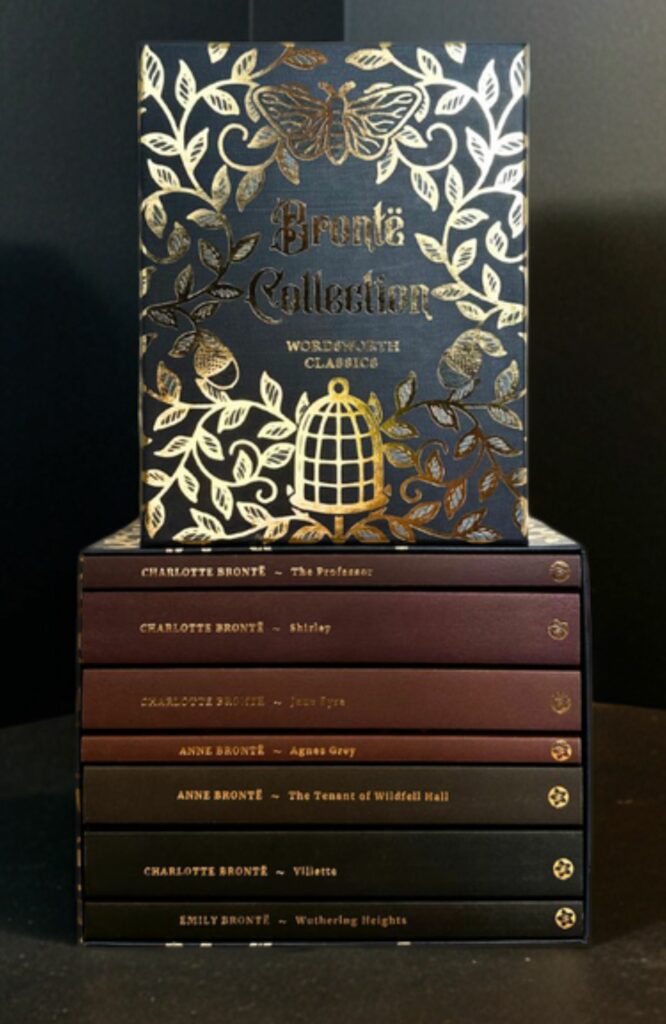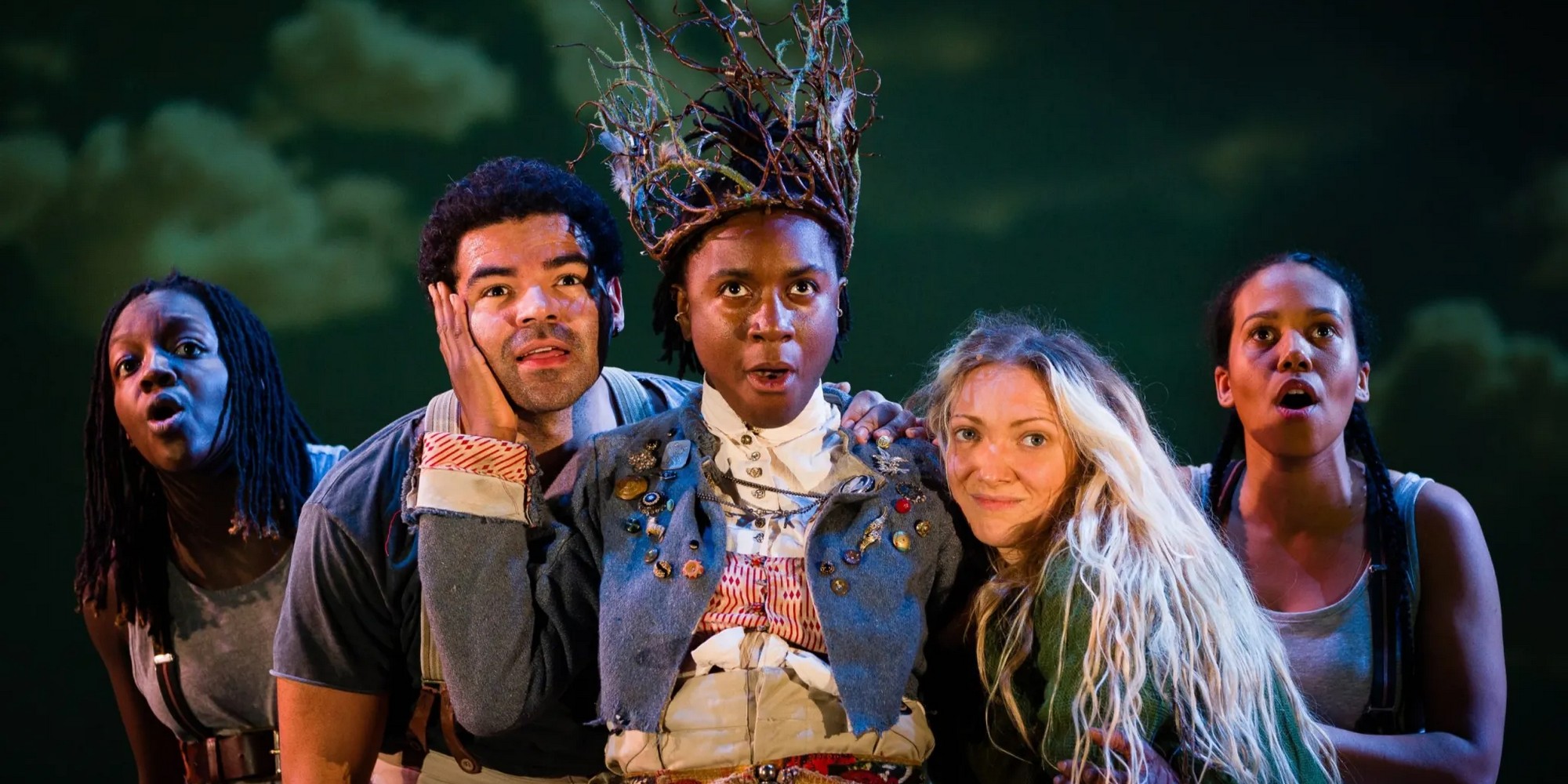
Wuthering Heights: Emma Rice’s production reviewed
Holding fast with Emma Rice’s Wuthering Heights: Stefania Ciocia embraces the power of Nature and of artistic adventures.
I remember the first time I read Wuthering Heights. I remember it for all the wrong reasons. I was still in high-school, and the long summer holidays afforded me ample time to read. With classes over from mid-June to mid-September, I would decamp to my grandparents’ house at the seaside – three whole months to swap the rhythms, and the constraints, of city life for a more relaxed routine that included plenty of iodine and swimming and hanging out with friends. But bookworms will be bookworms, and my summers also entailed epic reading sessions, especially at the controra, the afternoon curfew when everybody in the household would doze away the hottest part of the day.
Not me. Even as a much younger child, I’d waged a battle of the wills against the grown-ups, refusing to take a postprandial nap, my stubborn resistance fuelled by a genuine inability to nod off that continues to plague me to this day. My mother had had to concede to my nervous energy, though going out was not allowed – the whole neighbourhood was deserted and silent, the sun merciless – and letting the nonni rest was non-negotiable. I would keep my quiet vigil in the company of comics and books, sometimes lying on the floor, the coolness of the tiles much preferable to the soft warmth of my bed. Of the two sofas downstairs, one had the most terrible heat-generating upholstery, and the other was usually taken – a prime siesta spot, in the line of a feeble breeze.
With those hours of stillness stretched ahead of me, no literary encounter seemed too ambitious. I always had more than one book on the go and would intersperse the heftier tomes with less demanding material. In amongst going through the entire Agatha Christie canon, I made some interesting choices and, overstretched rather than precocious, came a cropper a number of times. Crime and Punishment took me three attempts to get started, though eventually I got to the end (I think). Undaunted, the following summer I soldiered on through War and Peace only to run out of holiday time, and stamina, with about fifty pages to go. I am not sure where exactly in this reckless sequence came Wuthering Heights. I suspect it preceded my Russian literature phase, but it was an equally ill-fated experience, for I remember taking the book with me to the beach, and floundering in the complexity of the narrative structure and of the family connections.
I don’t think I knew much about Wuthering Heights before picking it up, other than it was a classic, with an intriguing, atmospheric title. It can’t have occurred to me that the sweltering Calabrian heat and blinding sunshine might make for an uncongenial milieu from which to approach the dark, tempestuous landscape of Emily Brontë’s imagination. Luckily, this youthful folly has not prevented me from re-treading my steps to Wuthering Heights and Thrushcross Grange several times since and take in all that I’d missed on that first, bungled visit. My latest journey there was a spur-of-the moment decision, on the final day of the National Theatre run of Emma Rice’s adaptation of the novel, last March.
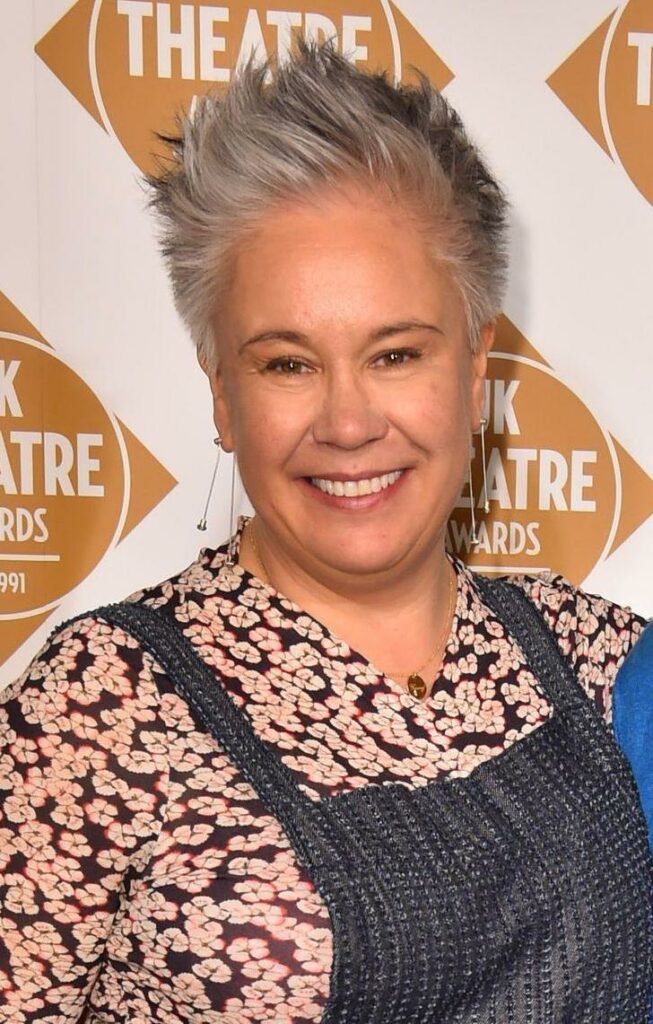
Emma Rice
I felt compelled to go the minute I clicked on Rice’s account of what drew her to tackle Wuthering Heights, back in 2016: “I was also really inspired, and moved, and angry about what was happening in the Calais Jungle at the time, and watching politicians argue over how many unaccompanied children we would give safe passage to, and that was when I had the revelation that Heathcliff was an unaccompanied refugee child. He was found in the Liverpool docks. He was speaking a different language. Nobody knew where he came from.”
Six years on, and the Russian invasion of Ukraine has caused the largest refugee crisis in Europe since the second world war. A month into the conflict, roundabout when I went to see the play, half of all Ukrainian children had been displaced. At the curtain call, the company’s parting words to the audience were a plea for donations to the DEC Ukraine Humanitarian Appeal, voiced by Liam Tamne, who, in the last week of the National Theatre run, took over from Ash Hunter the role of Heathcliff. Hunter had played the character with a Caribbean accent; Tamne reprised this signifier of difference by giving it a South Asian flavour.
Heathcliff’s outsider status is marked throughout. In the scene when Mr Earnshaw (Craig Johnson, later doubling up as Dr Kenneth) finds him in Liverpool, and brings him back home to meet Hindley (Tama Phethean) and Catherine (Lucy McCormick), the three children are represented on the stage by puppets, and Heathcliff is the one with sparkly eyes – their light to be dimmed by the hostile environment in which he’ll grow. “You go back. Go back to where you came from.”, Hindley growls at him in the following scene.
I appreciate that puppets are not everyone’s cup of tea, and that they have become almost a cliché in productions aimed at a crossover audience, but the inherent uncanniness of their mechanical presence works very well here. It manages to convey widely contrasting states and emotions, from unspeakable fragility – of which in a moment – to the unthinking, ferocious violence of Hindley’s early quarrel with his father’s protégé or, later in the story, the savage attack on McCormick’s Catherine by the Lintons’ dog, terrifying in its skeletal appearance, an animal skull appended to a scythe-like wooden contraption.
To begin with, instead, the puppets’ bodily spareness had acted as a visual shorthand for vulnerability. At least that’s what I saw in the tender embrace between fleshy Mr Earnshaw and bony, homeless Heathcliff. It was one moment in the play when I welled up, my customary response to the nakedness of the theatrical artifice and our collective make-believe – as I have written elsewhere – compounded by the thrill of having returned to enjoy live performances, and by a lingering sense of precarity. The thought that, as we were tentatively emerging from the pandemic, the world had already plunged into another catastrophe was never far from my mind.
This production of Wuthering Heights offers escapism in the exuberance of the acting, in the creativity and energy of the musical pieces and ensemble dancing, as well as in the liberal lashings of in-your-face comedy. But it never forgets, or lets us forget, its premise: that violence begets violence. “Be careful what you seed” is its strapline, as well as the insistent admonition that opens and closes one of the songs threaded through the story to accompany the action. This running commentary is provided by the Moor, conceived by Rice as a protean Greek Chorus which named characters emerge out of and disappear into.
Headlined by the anchoring figure of the Leader (Nandi Bhebhe), this primordial force is the real beating heart of the play, its introductory chant a rousing leitmotif and a defiant celebration of immutability against the violence of the elements: “I am the Moor / Ravaged by the stabbing rain, / Wizened by the rascal sun, / Tormented and mighty. / I hold fast. // […] My story is bigger than passing fancies / Bigger than cruelty. / My story turns the planet. / And it’s turning now. / But I hold fast. / I am the Moor.”[1]
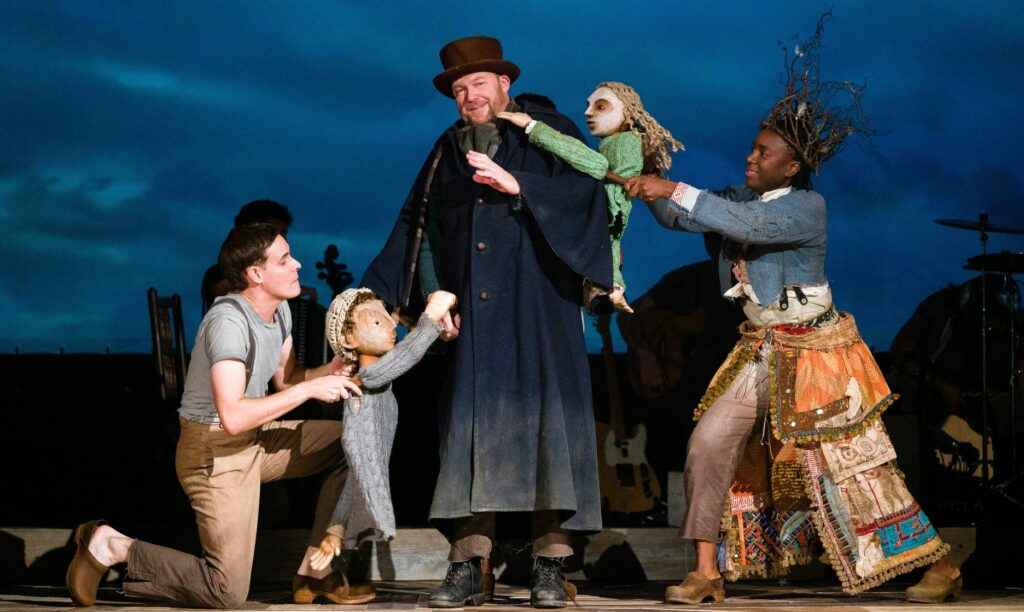 More prosaically, the Moor stands in for Nelly Dean as the mediator and prime interpreter of the events to Mr Lockwood (Sam Archer) and the audience. As intended by Rice, replacing a notoriously unreliable, human narrator with a collective manifestation of the wilderness adds to the epic dimension of Brontë’s Wuthering Heights. However, along with this compelling resonance, the Moor / Chorus augments the more pedestrian quality of mythical narratives: their tendency towards didacticism and moralizing. Where readers are alert to Nelly’s partiality, or downright sceptical of her trustworthiness, it’s hard not to take the Moor’s pronouncements as objective and imbued with good judgment.
More prosaically, the Moor stands in for Nelly Dean as the mediator and prime interpreter of the events to Mr Lockwood (Sam Archer) and the audience. As intended by Rice, replacing a notoriously unreliable, human narrator with a collective manifestation of the wilderness adds to the epic dimension of Brontë’s Wuthering Heights. However, along with this compelling resonance, the Moor / Chorus augments the more pedestrian quality of mythical narratives: their tendency towards didacticism and moralizing. Where readers are alert to Nelly’s partiality, or downright sceptical of her trustworthiness, it’s hard not to take the Moor’s pronouncements as objective and imbued with good judgment.
Besides, it’s not just that the Moor knows best. The Moor knows it all, and expects us to keep up. When Lockwood struggles with his induction into the intermingled family lines and complains “This is all too difficult. Far, far too difficult. How is anyone expected to follow this?”, the Moor’s reply is an impatient “Try harder!”. Now, as borne out by my adolescent experience, if there ever was a text in need of judicious signposting, Wuthering Heights may well be it. Rice runs with this idea, and errs on the side of generosity when it comes to providing explanations and recapitulations, flaunting the instructional function of some of the scenes.
On a couple of occasions, for example, we are reminded of the tally of characters who have shuffled off their mortal coil: members of the cast each hold a small blackboard bearing the name of one of the dearly departed. The knowingness of this moment bestows levity onto the lesson, but the pop-up graveyard also establishes an uncomfortable connection between formal teaching – presumably the opposite of what we are being subjected to – and death. Speaking of which, every time somebody dies, a flock of black birds takes flight on the big screen at the back of the stage. It’s not the best use of this visual narrative aid, which more than earns its keep when it shows striking images of the mutable sky, windswept clouds chasing each other at speed, and oozing pathetic fallacy, along with the other assorted unruly natural elements that punctuate the proceedings.
Thunderclaps abound at the end of Part II, in the fateful scene when Heathcliff, having overheard Catherine say that it would degrade her to marry him, misses the crucial corrective to this statement: “My love for Linton is like foliage in the woods: time will change it. My love for Heathcliff resembles the eternal rocks beneath. I am Heathcliff! He’s always, always in my mind: not as a pleasure, but as my own being.”[2] Lots of emoting follows: Heathcliff rages, calls for vengeance and storms away; then Catherine takes to the stage in ‘hard-rock chick’ guise, dark make up, dishevelled hair, heartbreak spat out in a furious song that is half curse, half proclamation of her earthy power.
If these set pieces are conceived to underscore the strength of the passion that the two characters feel for one another, I’m afraid they have the opposite effect. The hot-blooded drama comes across as a bit performative, a show of adolescent solipsism rather than the vehement outpouring of an all-consuming love that is as doomed and destructive as it is necessary. What this also means – and it may be no bad thing, considering the aura of glamour that surrounds the figure of the Byronic anti-hero – is that we are never in any danger of romanticising Heathcliff. For all the emphasis on the contextual circumstances that make him who he is, he is not sanitized into a desirable, brooding leading man, worthy of conditional pity and in with a chance of redemption.
There is no glossing over his cruelty and facility for violence, nor over the taboo-breaking extremes of his obsession with Catherine: we know that Heathcliff rapes Isabella (Katy Owen) on their wedding night, and we see his necrophilia acted on stage. This monstrous quality of his is foreshadowed early in the play by a rather clunky comparison to Nero, idolized by young Catherine as a one-of-a-kind individual, unbound by conventional morality.
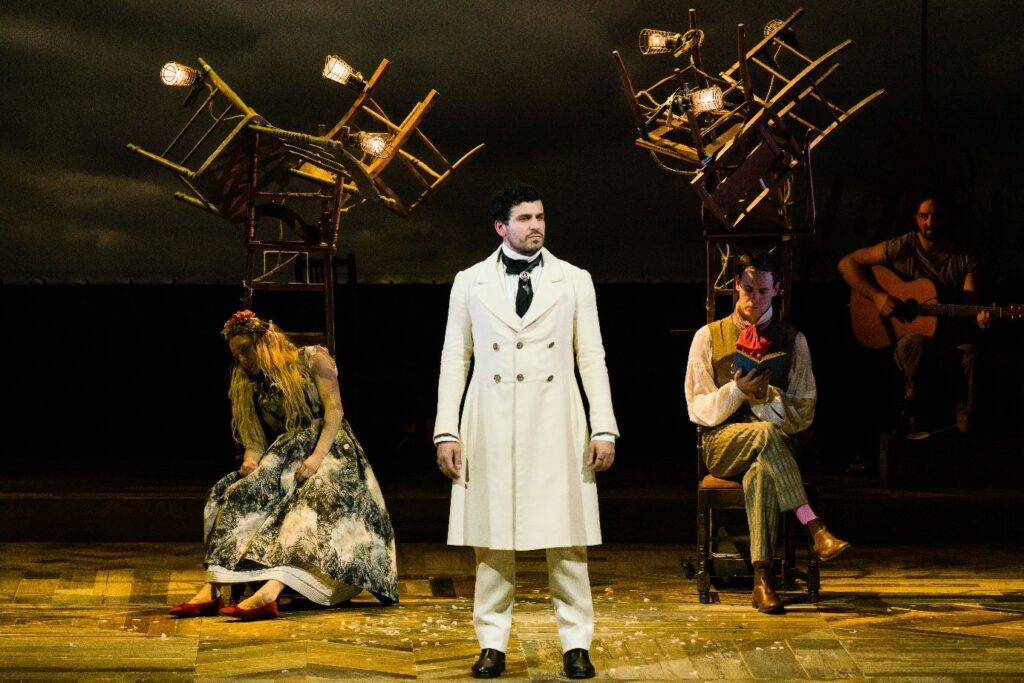 Where Catherine’s mythologizing reads like rebellious teenage posturing, the contradiction at Heathcliff’s hollow core is an intensity of purpose coated by cold, steely indifference. The problem in this production is that, more often than not, we don’t really care either, even when we are directly called upon to do so. After the (mercifully off-stage) brutal consummation of their marriage, Isabella pleads: “Remember my name please. I am Isabella Linton. No. I forgot. I am Isabella Heathcliff. I don’t want to disappear.” It could have been a devastating petition, but it doesn’t quite land emotionally with the audience, and that’s because the Lintons are rendered as caricatures.
Where Catherine’s mythologizing reads like rebellious teenage posturing, the contradiction at Heathcliff’s hollow core is an intensity of purpose coated by cold, steely indifference. The problem in this production is that, more often than not, we don’t really care either, even when we are directly called upon to do so. After the (mercifully off-stage) brutal consummation of their marriage, Isabella pleads: “Remember my name please. I am Isabella Linton. No. I forgot. I am Isabella Heathcliff. I don’t want to disappear.” It could have been a devastating petition, but it doesn’t quite land emotionally with the audience, and that’s because the Lintons are rendered as caricatures.
At one point, still unaware of the poisonous power dynamics at Wuthering Heights, Edgar (Sam Archer again) and Isabella (Katy Owens) literally pirouette on stage, foppish, mannered and fey. The doubling up of Edgar with Lockwood highlights that they are both out of their depth. What saves Lockwood is that he is always at one remove from the action; if the deerstalker lends him a vaguely Holmesian air, the practical heft of his tweeds and wellingtons anchor him to solid ground.
In contrast, Edgar Linton’s lithe balletic display is suggestive of flightiness, as well as ridiculous: an ethereal, insubstantial character, he’ll die in the knowledge of having failed to keep his daughter from the magnetic pull of Wuthering Heights, and safe from Heathcliff’s scheming. Meanwhile, Katy Owen threatens to steal the show as the comically petulant, needy, inane Little Linton. The boy is a manipulative weakling, terrified of his father and self-entitled in his relationship with Young Cathy but, as in Isabella’s case, psychological complexity plays second fiddle to chasing laughter.
The comedy works much better when it undercuts the didacticism of the play. After the interval, Heathcliff returns to the stage looking like a ringmaster, brandishing a whip. “Well what did you expect? / This man was found in loss, / Grown in hate / And hardened in revenge. / If you want Romance? Go to Cornwall.”, the Moor taunts the audience. A glutton for punishment, Lockwood instead returns to Wuthering Heights in the epilogue, where he is needed for dramatic purposes to instigate the denouement. We are “almost back where we started”, with the hapless tenant of Thrushcross Grange knocking on his neighbours’ door, struggling against violent gusts of wind.
This second visit is met with a warm welcome by an aproned Hareton, the new homeowner after Heathcliff’s death three months hence. And so to the final temporal shift in the action, when we loop back to the thawing of the young man’s relationship with his cousin Cathy, and their improbable courtship. Tama Phethean’s is the standout ‘doubling-up’ performance: with the Hindley-Hareton combo, he must plumb the depths of neglect and degradation, and then soar to paradisiacal levels of bliss. Hareton’s transformation from despised brute to tender lover shows that we didn’t have to go to Cornwall for romance after all. The Leader of the Moor concedes: “[Love] must have bubbled up from a spring while we looked away.”
The mention of a buried source of goodness surfacing in the lives of these characters made me balk, bringing to mind the speculation that the Brontës’ chronic ill-health may have been connected with the water from their well, contaminated by its proximity to the local churchyard. In a broader sense, however, the renewed reference to the power of nature is apt. Singing its theme tune one last time – “softly” stipulates the stage direction – the Moor ostensibly mellows: “My story turned the planet. / And it’s turning now. / But I let go… / I am the Moor.” The release heralds the happy ending through the union of Catherine’s and Linton’s descendants, and the erasure of Heathcliff’s line. But, don’t be fooled, it’s not the nub of this Wuthering Heights. The Moor endures.
It has done so in Emily (2022), Frances O’Connor’s fictionalized treatment of Brontë’s life, which I enjoyed much more than Sally Minogue did, partly because I was asking less (or something different) of it. Of course, O’Connor has the rugged Yorkshire and Cumbrian landscape to feature so vividly in her film. As we have seen, Rice breathes life into the natural environment by personifying it, and giving it an epic stature. In this, her play is a triumph. But there are consequences. Against its perennial surroundings, and the constant presence of the ensemble cast, the tormented love story between Catherine and Heathcliff is diminished. It is further side-lined by the younger generation’s domestic idyll, which doesn’t portend to move heaven and earth and, lacking bombast, is more touching.
The displacement of the central romantic relationship is a big deal for some reviewers. Writing of the original production at the Old Vic in Bristol, Arifa Akbar uses the word “sacrilegious”. I am not so sure that it is. We’ve got to gloss over a lot of nasty, complicated stuff to see Catherine and Heathcliff as an ideal couple. And, in any case, with Nature posited as permanent in contrast to our mortality and the fickleness of our emotions, what does it matter? The epilogue really is an interlude. There’ll be other dramas, they’ll pass, they’ll be forgotten.
Perhaps my receptiveness to this theme in the play has been heightened by the experience of lockdown. This was my first trip to the theatre after the pandemic. About a week later, I managed to bag a Friday Rush ticket to Deborah Warner’s landmark new production of Peter Grimes at the Royal Opera House, and this too has coloured my thinking about Wuthering Heights. There are so many parallels: both are about outsiders, morality, the puniness of humankind against the elements. Conversely, the comparison throws into relief a dimension of the Moor I have been at risk of overlooking: vibrant, wise, nurturing, in its role as Choir it is the opposite of Britten’s brutal mob, and of the sea too, indifferent to the unfolding tragedies.
Allan Clayton’s visceral interpretation of Peter Grimes has been by far the theatrical gem of 2022 for me; in fact, the whole production is one of the most powerful artistic revelations I have ever had. As my initiation to Britten – another first – it’s had a Damascene effect, opening my eyes, and heart (and ears!) to his amazing legacy, as a musician and as a believer and promoter of the accessibility of the arts to all. That democratic, inclusive spirit animates the work of many arts organizations we are so lucky – at least for the time being[3] – to have in this country. It is the ethos that inspires what Emma Rice does with her company ‘Wise Children’. As for her Wuthering Heights, of course I didn’t mind the larger-than-life, epic, operatic canvas. Bold, brash, and galvanizing, it’s a superior kind of playing to the gallery.
Stefania has donated her fee for this article to DEC Ukraine Humanitarian Appeal
A list of companies that continue to trade in Russia can be found here: https://www.websiteplanet.com/blog/companies-boycotting-russia/
Emma Rice’s Wuthering Heights is currently on tour in the United States of America. A recording of the performance is available in the UK (check the Wise Children website for details).
[1] For a flavour of the Moor’s indomitable spirit, see this trailer.
[2] Here and elsewhere I am quoting from the play, published by Methuen Drama (2021), rather than the novel.
[3] I am thinking here of the current plight of the English National Opera, where I enjoyed another terrific first, in a work where our relationship with Nature is once again key: Leos Janáček’s The Cunning Little Vixen. Jamie Manton’s new production drew on a supporting cast of twenty-four children and young people recruited from local schools via the ENO Engage scheme. To find out more about ENO’s work, and how to support it, see here. #LoveENO
Main image and pictures are publicity shots of the stage production.
Image of Emma Rice credit: PA Images / Alamy Stock Photo
Books associated with this article
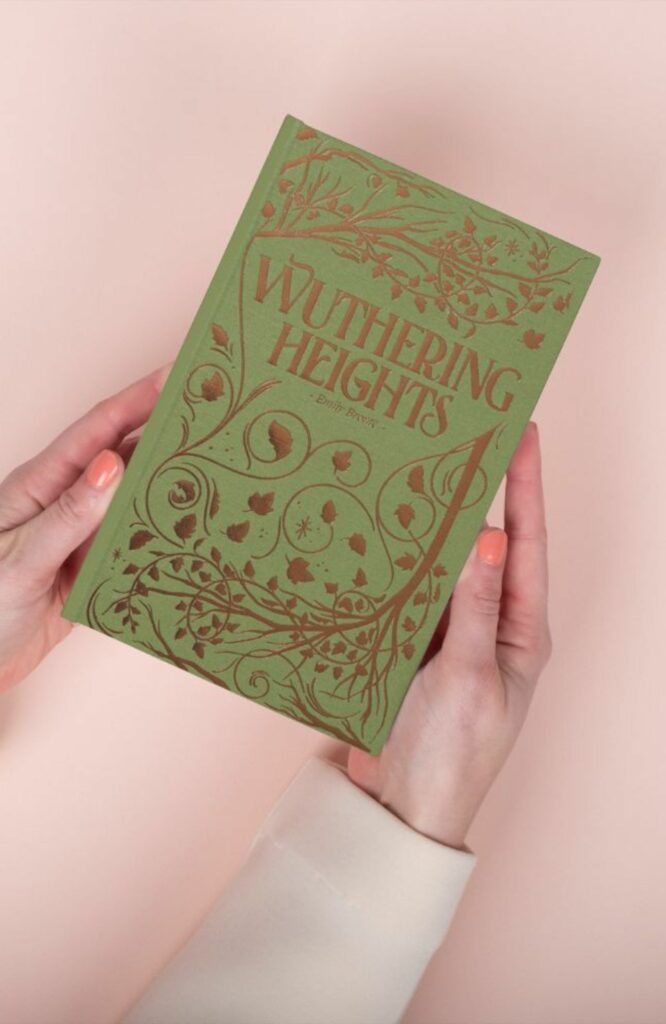
Wuthering Heights (Luxe Edition)
Emily Brontë
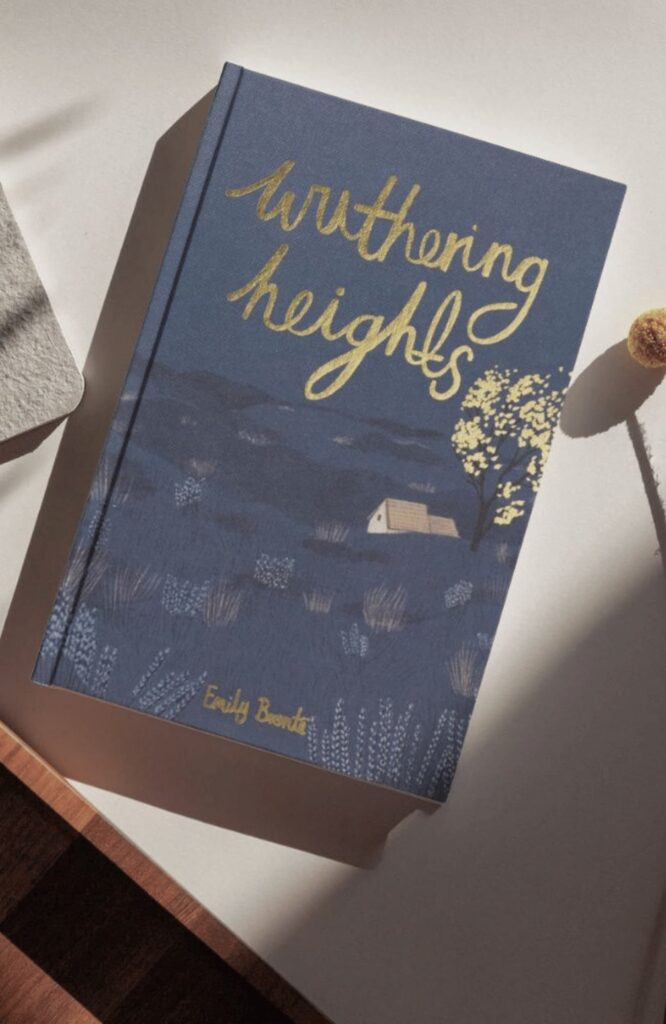
Wuthering Heights (Collector’s Edition)
Emily Brontë
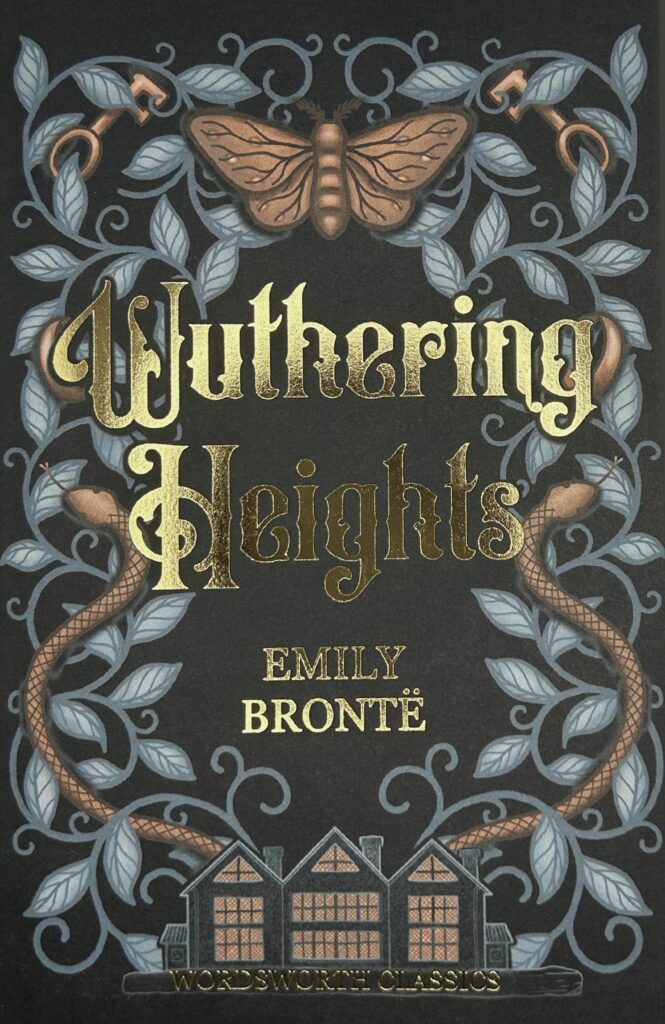
Wuthering Heights
Emily Brontë
